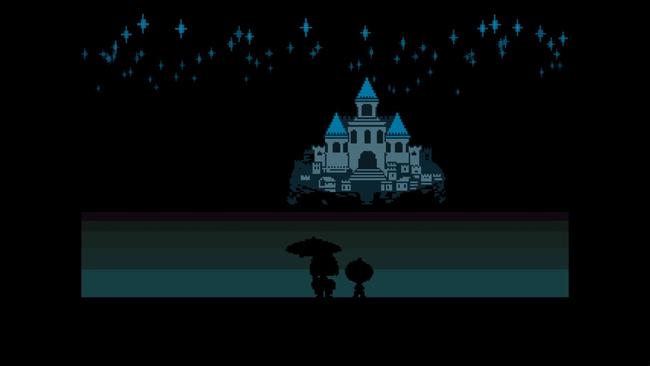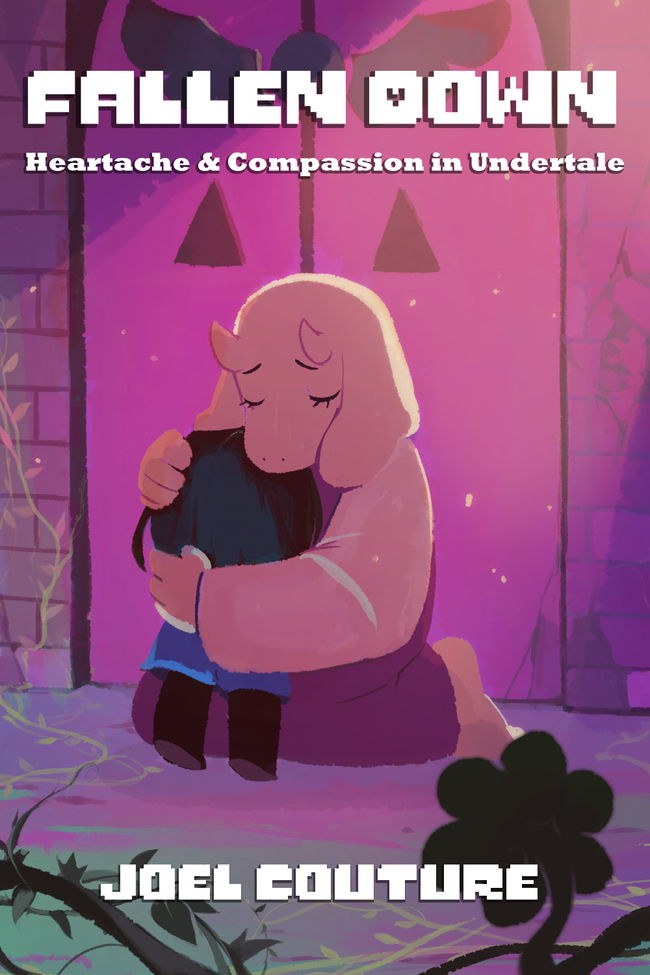
Fallen Down by Joel Couture - How emotional bonds are formed with pixels in Undertale
Note: This article will have spoilers for the entirety of Undertale.

Undertale, when released in 2015, made quite a few waves amongst indie game communities, and eventually even the mainstream media. Those who played it can easily see why. It was an RPG that promoted friendship for every being in the world, and the game made its own bold statements about how video games handle enemies and hostile encounters. On top of that, Undertale had a plethora of memorable characters, most of whom you have to fight and either spare or kill.
Joel Couture’s book Fallen Down: Heartache & Compassion in Undertale is a wonderfully written work that goes in depth into these character relationships, as well as how these play into the message Undertale is trying to get across - and even some of the more meta commentary about player habits.
When I began reading the book, I really wondered how Couture was going to handle all the complexities of Undertale’s writing and game programming. However, when I got to the first actual chapter, I saw one line after the epigraph, which my phone cut the page off for dramatic effect:
“I killed Toriel.”
I knew, right then and there, that Couture had seen what Undertale can do, how it can mess with your preconceived notions of how to play video games, and what’s “right” and “wrong” to do. I, too, killed Toriel, thinking that I needed to ‘prove myself’ in order to continue, completely forgetting everything that Toriel herself taught me mere moments ago.
Like any good gamer when they realize their mistake, I reset the game after the battle, wiping the slate clean and instead choosing the right option… or so I thought. When I rebooted Undertale, the game made note of my previous transgressions, and wanted to make sure I knew… and that I wouldn’t forget, and that Undertale wouldn’t forget.
It’s quite an eye-opening moment, but also one I don’t see mentioned often in discussions of the game (presumably because, well, most players actually followed Toriel’s teachings). I was quite excited to see that not only does Couture mention it, but break down his reasonings for killing her, what effects that had on his first playthrough, and most importantly how that affects how he plays the game from then on.
“This wasn’t killing faceless characters in a game. This was an assault on characters I knew and loved.”
Couture continues Fallen Down mainly in this fashion, talking about the more memorable characters of Undertale and how these simple pixels can elicit such emotional responses from players.
What really drives his point home are his experiences of playing the Genocide path, which he hadn’t done before setting out to write this book. You can tell it’s quite a harrowing experience for him like it would be for many others. Setting out to deliberately kill the characters that you’ve grown to love, major or otherwise, is no easy feat, and Undertale heavily punishes you for doing so with a much harder game and some hard-coded, permanent unpleasantries if you manage to complete the entire run.
The Genocide path is something I’ve merely read about as it’s not something I’ve been able to bring myself to do. Even when morbid curiosity got the better of me when I completed the Pacifist path, rebooting the game merely got Flowey asking me, "…Why? Everyone’s happy now, why would you even come back?"
Of course, I knew that if I left the game on long enough, looking at Flowey’s sad face, I could do it all again, but he was right. Why make the characters I enjoyed so much suffer all over again?
Undertale’s characters and their interactions really make it a stand out title, and Couture’s book perfectly encapsulates what makes this game so special. It’s well worth a read for anyone that enjoys this indie classic.
Fallen Down: Heartache & Compassion in Undertale will be available as part of this month’s Summer Smash Game StoryBundle.
